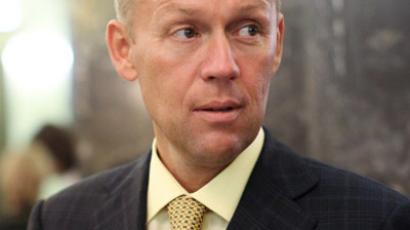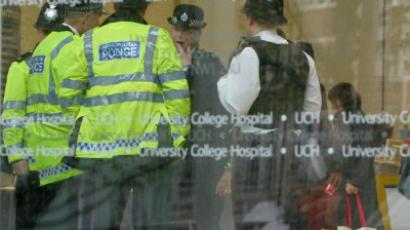Litvinenko worked for 'MI6 and gave Spain intel on Russian Mafia' – widow's lawyer
Former FSB officer Aleksandr Litvinenko, who died in London of polonium poisoning in 2006, worked for the British foreign intelligence service as well aiding Spain in their fight against the Russian mafia, the UK inquest revealed Thursday.
“At the time of his death Litvinenko had been for a number of years a regular and paid agent and employee of MI6 with a dedicated handler whose pseudonym was Martin,” Ben Emmerson QC, representing Marina Litvinenko, told the coroner. Emmerson said that MI6 “tasked” Litvinenko to connect with Spanish intelligence whom he provided with information on “organized crime and Russian Mafia activity in Spain and more broadly.” The information went directly to Spanish prosecutors.The agent was paid by both the British and Spanish secret services into a joint bank account he held with his wife, the hearing at Camden Town Hall, in London, was told.Litvinenko allegedly met “Martin” on October 31, 2006 – less than a month before his death, Emmerson revealed. The handler is expected to testify in the inquest, an investigation thats looking to find the reasons behind his death but not rule on anyone’s guilt.The QC and Litvinenko’s family stressed that such deep involvement of the agent with the British intelligence put even more responsibility on the UK government to protect himLitvinenko, who was aged 43 at the time of his death, died of polonium-210 poisoning after allegedly drinking tea with his two former colleagues at a central London hotel. He was a critic of Vladimir Putin and had sought to expose what he called wrongdoing within the FSB security service. Litvinenko had worked both for the FSB and its predecessor the KGB before he fled Russia in 2000. On his deathbed, Litvinenko blamed Putin for his demise.The death sparked massive alarm that such a highly toxic material could be brought into the UK without being traced. The case came to be branded as “nuclear terrorism.”The two Russians, who met with Litvinenko, were former KGB contacts Andrey Lugovoy and Dmitry Kovtun. UK prosecutors have named the two as prime suspects in his death. Both deny involvement, while Russia refused to extradite them saying such an extradition would contradict its constitution.Lugovoy, now a Russian MP, maintains that Litvinenko had acquired the polonium and ended up either poisoning himself or was killed by the MI6. A lie detector test in April also showed Lugovoy did not contribute to the incident.On Thursday, Hugh Davies, counsel to the inquest, concluded that the material released by the British government for the inquest “does establish a prima facie case as to the culpability of the Russian state in the death,” as quoted by British newspaper, The Mirror.Davies ruled out evidence against Boris Berezovsky, a Russian tycoon in self-exile who was accused of Litvinenko’s death by the agent’s father. He also dropped other suspects who have been named in conspiracy theories including the Spanish mafia, Chechen groups and several others.Russia says it would like to become an interested party in the inquest and have the chance to make submissions and cross examine witnesses.














